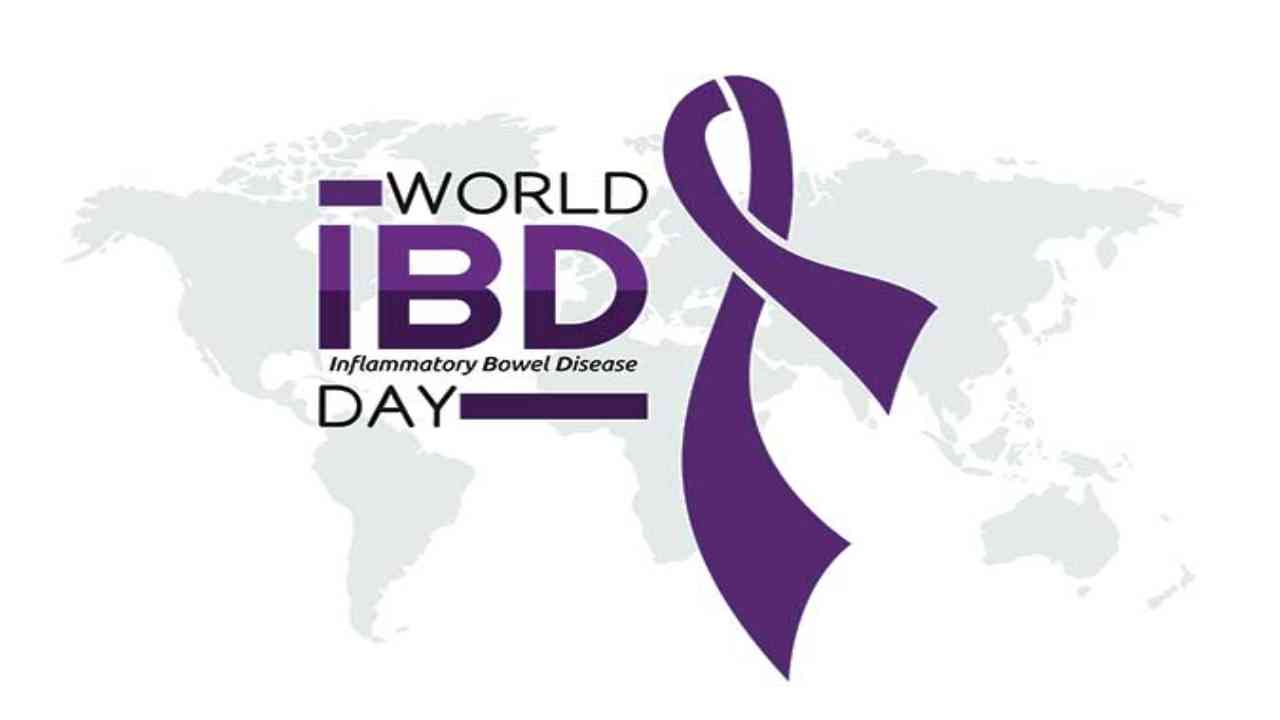World IBD Day 2022: May 19 is marked World IBD Day. The date is significant because it marks the anniversary of the Crohn’s and Colitis Foundation of America (CCFA) being founded in New York City in 1967. The CCFA is a nonprofit organization dedicated to finding cures for inflammatory bowel diseases (IBD). World IBD Day brings global awareness to these diseases and their effects on patients’ lives.
What is World IBD Day?
World IBD Day is a day of awareness and education about inflammatory bowel disease (IBD). IBD is a chronic, inflammatory condition of the gastrointestinal tract. It can cause severe abdominal pain, diarrhea, weight loss, and fatigue. IBD can be very debilitating and often has a negative impact on quality of life.
There is no cure for IBD, but there are treatments that can help to control the symptoms. World IBD Day is an opportunity to raise awareness about this condition and to educate people about the available treatments. It is also a day for people with IBD to come together and share their experiences.
World IBD Day is held every year on May 19th. This date was chosen because it is the birthday of Dr. Crohn, who first described the condition in 1932.
World IBD Day 2022: Theme
This year many IBD patient associations would like to raise awareness about IBD in elderly people. Under the slogan IBD has no age we want to put the focus on the elderly and see how living with Crohn´s disease and Ulcerative Colitis is impacting on their quality of life and care.
What is Inflammatory Bowel Disease?
Inflammatory bowel disease (IBD) is a condition that causes inflammation in the digestive tract. The two most common types of IBD are Crohn’s disease and ulcerative colitis. IBD can be painful and debilitating, and it can sometimes lead to life-threatening complications.
There is no cure for IBD, but there are treatments that can help to control the symptoms. Some people with IBD may need to take medication, while others may require surgery.
World IBD Day is an annual event that raises awareness of inflammatory bowel disease. The day also provides a platform for people with IBD to share their experiences and support each other.
Osteoporosis- The Silent Disease
The Different Types of Inflammatory Bowel Disease
There are two main types of inflammatory bowel disease (IBD): Crohn’s disease and ulcerative colitis. Crohn’s disease affects the digestive tract, while ulcerative colitis only affects the large intestine. Both conditions are chronic, meaning they can last for years or even a lifetime.
Crohn’s disease and ulcerative colitis can both cause a range of symptoms, including abdominal pain, diarrhea, fatigue, and weight loss. They can also lead to serious complications, such as bleeding, malnutrition, and even death.
There is no cure for IBD, but there are treatments that can help to manage the symptoms and prevent complications. These include medication, surgery, and lifestyle changes.
Symptoms of Inflammatory Bowel Disease
There are a few different symptoms that are associated with inflammatory bowel disease, or IBD. These symptoms can range from mild to severe, and they may come and go over time.
The most common symptom of IBD is abdominal pain. This pain is often crampy and may be worse after eating. Other symptoms include diarrhea, weight loss, fatigue, and fever.
IBD can also cause other problems outside of the digestive system. For example, people with IBD may have joint pain, eye inflammation, and skin rashes.
If you are experiencing any of these symptoms, it is important to see a doctor so that you can get a proper diagnosis. IBD is a serious condition that can be very painful and debilitating. However, there are treatments available that can help to control the symptoms and improve your quality of life.
World IBD Day 2022: Causes of Inflammatory Bowel Disease
There is no one known cause of inflammatory bowel disease (IBD). However, there are several factors that may contribute to the development of IBD. These include:
• Genetics: IBD can run in families, which suggests that genetics may play a role in its development.
• The immune system: IBD may be caused by an abnormal response of the immune system. In people with IBD, the immune system may attack healthy cells in the digestive tract.
• Environment: Environmental factors, such as exposure to certain viruses or bacteria, may trigger the development of IBD.
While the exact cause of IBD is unknown, these are some of the possible factors that may contribute to its development.
Treatment for Inflammatory Bowel Disease
There is no one-size-fits-all treatment for inflammatory bowel disease (IBD). The best approach for each person depends on the type of IBD they have, the severity of their symptoms, and how well they respond to different treatments.
There are two main types of IBD: ulcerative colitis and Crohn’s disease. Ulcerative colitis affects the large intestine (colon) and rectum. Crohn’s disease can affect any part of the digestive system, from the mouth to the anus.
Treatment for IBD often involves a combination of medication and lifestyle changes. Medications used to treat IBD include anti-inflammatory drugs, immune-suppressing drugs, and antibiotics. Lifestyle changes that may help manage IBD symptoms include eating a healthy diet, getting enough exercise, and reducing stress.
Some people with IBD may need surgery to remove part of their intestines. In severe cases, other organs may be affected by IBD and may need to be removed as well. However, surgery is not a cure for IBD and symptoms usually return after surgery.
If you have been diagnosed with IBD, it is important to work with your doctor to develop a
World IBD Day 2022: Crohn’s Disease and Ulcerative Colitis
Crohn’s disease and ulcerative colitis are two types of inflammatory bowel disease (IBD). IBD is a chronic condition that causes inflammation in the digestive tract. Crohn’s disease can affect any part of the digestive tract, from the mouth to the anus. Ulcerative colitis only affects the large intestine (colon) and the rectum.
Both Crohn’s disease and ulcerative colitis are lifelong conditions that can be difficult to manage. There is no cure for either condition, but there are treatments that can help to control the symptoms.
Symptoms of Crohn’s disease and ulcerative colitis can vary from mild to severe. They may include abdominal pain, cramping, diarrhea, weight loss, fatigue, and fever. Some people with IBD also experience joint pain, eye inflammation, and skin problems.
IBD is a relatively rare condition, affecting about 1 in every 1000 people in the United States. It is more common in people of Caucasian descent than in other racial groups. IBD is also more common in men than in women.
Conclusion
World IBD Day is a day to raise awareness of inflammatory bowel disease (IBD). The 2022 date has not been announced yet, but it is typically held on the first Sunday in May. This year’s theme is “IBD: Let’s Talk About It.” The goal of World IBD Day is to break the silence surrounding IBD and start a conversation about this often debilitating disease. If you or someone you know suffers from IBD, be sure to mark your calendar for next year’s World IBD Day.


















